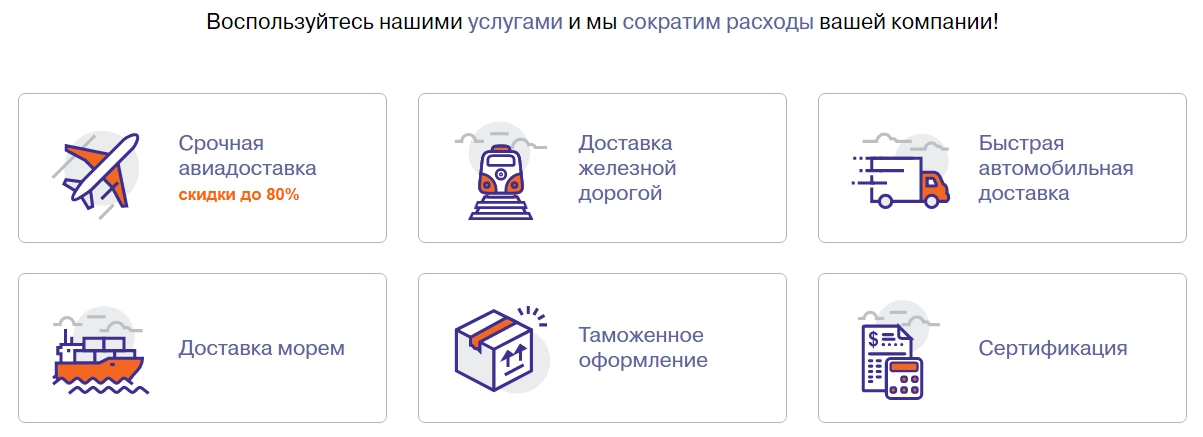How Self-operating Systems are Revolutionizing Freight Shipping
How Self-operating Systems are Revolutionizing Freight Shipping
Blog Article
The logistics industry, particularly shipment movement, is witnessing a remarkable shift, propelled by the constant progress of automated systems. As organizations strive for productivity and rapidity in transportation processes, mechanization remains at the helm of this revolution, revolutionizing how merchandise are shipped across the international markets. From AI-powered trucks to smart surveillance technologies, the evolution of this industry is evident, delivering substantial improvements in speed, dependability, and affordability.
Revolutionizing Efficiency with Automation
At the heart of this AI-driven wave is the implementation of automation in shipment logistics operations. Conventional approaches often faltered under the weight of errors and human error. However, cutting-edge AI-driven technologies deliver intelligent methods that optimize workflows.
One noteworthy improvement is in the area of air transport, where autonomous technology assists in managing multi-layered supply chain tasks that involve pathway planning and aviation flow regulation. This not only accelerates the process but also bolsters safety by eliminating potential manual errors.
Improved tracking systems are another boon. Today’s innovation allows for instantaneous tracking of packages, which ensures companies and end-users updated about the whereabouts of their products 24/7. This visibility is invaluable in establishing trust and dependability in cargo distribution solutions.
Reducing Overheads and Optimizing Regulatory Processes
AI-powered systems advances into the intricate workflows of border control authorization, traditionally a obstacle for shipment logistics due to its intricate regulations and potential setbacks.
Modern AI-integrated frameworks equipped with large-scale analytics tools can efficiently process massive datasets of documentation and guarantee adherence with government policies faster than ever before. This minimization in workflow delays cuts down on operational expenditures dramatically, showcasing a tangible economic gain that businesses can leverage.
Transforming Supply Chain with Big Data
Furthermore, the utilization of data analytics restructures the strategy toward cargo handling and regulatory processing. By analyzing historical data and real-time patterns, AI-powered technologies predict problems and enhance workflows to be more consistent and seamless.
Enterprises observing instant data can make informed strategies that naturally reduce risks linked to border clearance setbacks.
Sustainability Impact
Automated technologies also contribute greatly to green responsibility in shipment logistics. More optimized and well-planned navigation calculation minimizes avoidable energy consumption and lowers greenhouse gas.
AI-powered delivery trucks are progressively compatible with eco-friendly power solutions and battery-powered power, aligning logistics shipping operations with widespread green targets.
Enhancing End-User Experience
The automated system improves not just logistical streamlining but also client satisfaction. The capacity to track shipments in as they happen, face fewer delays, and appreciate lowered costs enhances client journey significantly.
Swift, open, and efficient logistics frameworks are more expected to build loyalty and continuous transactions, showing that cutting-edge technology is essential in contemporary freight delivery models.
Additionally, as automated tools manage repetitive operations more effectively, organizations can allocate employee capital to areas demanding critical thinking and planning, thereby elevating service excellence overall.
Looking Ahead: The Automated Landscape
The transformative influence of AI-driven systems in logistics transport guarantees an promising era for supply chain. As organizations continue to utilize these solutions, they enhance their market position by delivering faster, risk-free, and more cost-effective transportation options.
Sustainability innovations further broaden the attractiveness of self-operating frameworks, aligning sector operations with eco-friendly efforts.
A Progressive Phase in Cargo Transport
In summary, the integration of automated solutions in freight transport opens up a vast array of prospects designed for making transport not only faster but also more reliable and less financially burdensome.
The strategic use of advanced analytics in optimizing regulatory formalities further accentuates the efficiency of automated technologies in revolutionizing conventional cargo transport industries.
Self-Operating Systems: The Future of Cargo Transport
Cargo transport is stepping confidently into a modern age led by AI-driven technology—a proof to mankind’s continuous quest of innovation.
With ever-evolving innovations, the potential to revolutionize international commerce structures remains, marking an optimistic trajectory towards an integrated and streamlined landscape in logistics shipping.
More details about tamozhennoe oformlenie visit this webpage: check it out.